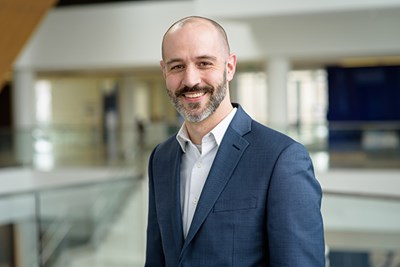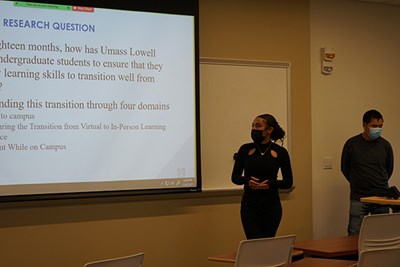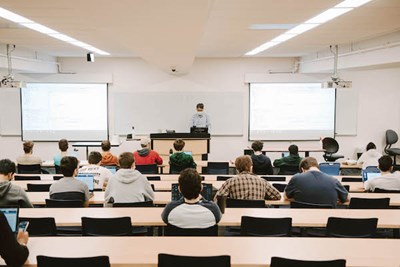.png)
An international team of investigators has discovered that an inorganic polyphosphate released by nerve cells known as astrocytes in people with amyotrophic lateral sclerosis (ALS) and frontotemporal dementia (FTD) contributes to the motor neuron death that is the signature of these diseases.

How many law enforcement officers, military veterans and active duty service members are affiliated with far-right groups that commit acts of domestic terrorism? Are people who post violent thoughts online likely to act on them?

Every year, the Student Government Association (SGA) surveys undergraduate students to learn more about their most pressing needs and concerns, so it can advocate for university resources to address them.

If a student finds themselves struggling in a course, there are several places they can turn to on campus for tutoring,

On Jan.

With gas prices hitting record highs, drivers everywhere are reaching deeper into their pockets at the pump.
An international team of researchers, led by the University of Massachusetts Amherst, recently announced in the journal Current Biology that an amoeba called Naegleria has evolved more distinct sets of tubulins, used for specific cellular processes, than previously thought. Their insight has a host of implications, which range from developing treatments for brain-eating infections to better understanding how life on earth evolved such enormous diversity.
Jennifer Rauch, assistant professor of biochemistry and molecular biology, is collaborating on a two-year, $700,000 National Institutes of Health grant to develop a new technology to treat Alzheimer’s disease, chronic traumatic encephalopathy and other neurodegenerative diseases.
A University of Massachusetts Amherst epidemiologist has received a five-year, $3 million Outstanding New Environmental Scientist (ONES) grant from the National Institute of Environmental Health Sciences (NIEHS) in his ongoing effort to discover more about the origins and risk factors of autism.
Two UMass Amherst faculty members have recently been appointed to the Asian American and Pacific Islanders Commission (AAPIC), a statewide body whose purpose is to enhance opportunity for Asian Americans, especially those newly arrived in the country. Richard T. Chu, professor of history, was appointed by State Treasurer Deborah Goldberg in February and Leo. L. Hwang, assistant academic dean in the College of Natural Sciences, was appointed by State Auditor Suzanne M.